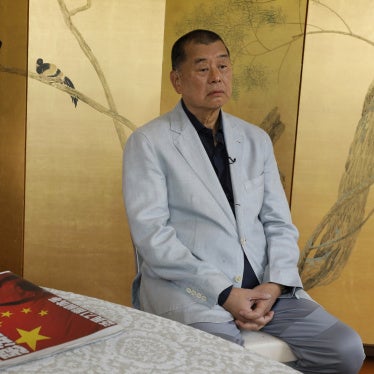April marks one year since Afghan voters made history by defying Taliban threats and casting their ballots in unprecedented numbers in the presidential election. Ashraf Ghani, who became president after a lengthy and contested electoral process, has promised to give priority to human rights—particularly freedom of expression, protecting women’s gains, and restoring government accountability.
Yet major threats to human rights continue, not because the policies of the National Unity Government are misplaced, but because it has failed thus far to implement them.
In his inaugural TV debate, President Ghani correctly referred to a culture of impunity that gives free rein to officials ranging from powerful civilians to intelligence and police commanders to kill, rape, torture, and imprison people without fear of prosecution, and often with support from foreign forces.
Under former president Hamid Karzai, the government failed to bring these abusive individuals and their forces to justice, fostering further violations and fuelling support for the Taliban and other anti-government forces. In the TV debate, Ghani also said that some Taliban fight because they have been “forced” to do so by “tyranny and injustice” in the hands of government forces. He has pledged to hold security forces accountable for their actions and end official tolerance for torture, but he will need the full support of Afghanistan’s international supporters to carry out this politically sensitive task.
This lack of accountability explains why torture in Afghanistan is deeply entrenched. Torture and mistreatment in Afghan detention centre and jails is a well-documented phenomenon, one that Karzai made half-hearted attempts to curb. The United Nations continues to document “regular and prevalent” torture and mistreatment, noting that presidential decrees banning torture are meaningless unless officials establish robust accountability mechanisms to deter wrongdoers.
Ghani has vowed to hold security forces accountable, but with one exception, no public official has yet been prosecuted for torture. He needs to do better.
Some of these same strongmen, government officials, and security force commanders have also assaulted and threatened journalists. Media freedom in Afghanistan, which both Ghani and his election opponent and Chief Executive Abdullah Abdullah have pledged to protect, faces increasing threats, many of them from government officials.
Even though Ghani signed the landmark Access to Information Law last October, the Afghan National Security Council and other high-level officials issued decrees restricting the media’s access to information. Defence officials imposed a near-total blackout of media access during this month’s operation in the embattled Helmand province, which meant that the media could not verify reports of deliberate destruction of civilian properties by Afghan forces.
A free and vibrant media has been one of the biggest successes of post-Taliban Afghanistan, yet a failure to protect journalistic freedom has emboldened those determined to suppress criticism of the government, the security forces, and other powerful entities in Afghan society. The government must act decisively to end the violence and intimidation, and the Taliban should stop its attacks on the media and other civil society organisations.
The National Unity Government is making fresh efforts to negotiate with the Taliban. But women’s rights advocates have repeatedly expressed concerns that the government, in its eagerness to reach a deal, might barter away women’s gains of the last decade.
One way that could help avoid this would be to ensure women participate in a meaningful way in any talks. Past exclusion of women from the process validates those fears. A 2014 study by Oxfam found that in 23 rounds of peace talks between the Afghan government and the Taliban since 2005, only one woman from the government was present on two occasions. There were no women in discussions between international negotiators and the Taliban.
Previous negotiations have typically occurred with little transparency, and the Afghan people have learned about them only after they were done. This has prevented civil society groups, including women’s rights activists, from offering recommendations to the government for ensuring human rights protections in the event a settlement is reached.
More than a year after Afghans voted, the government still faces formidable challenges. Putting human rights at the top of its agenda is a key and overdue step toward addressing them.







